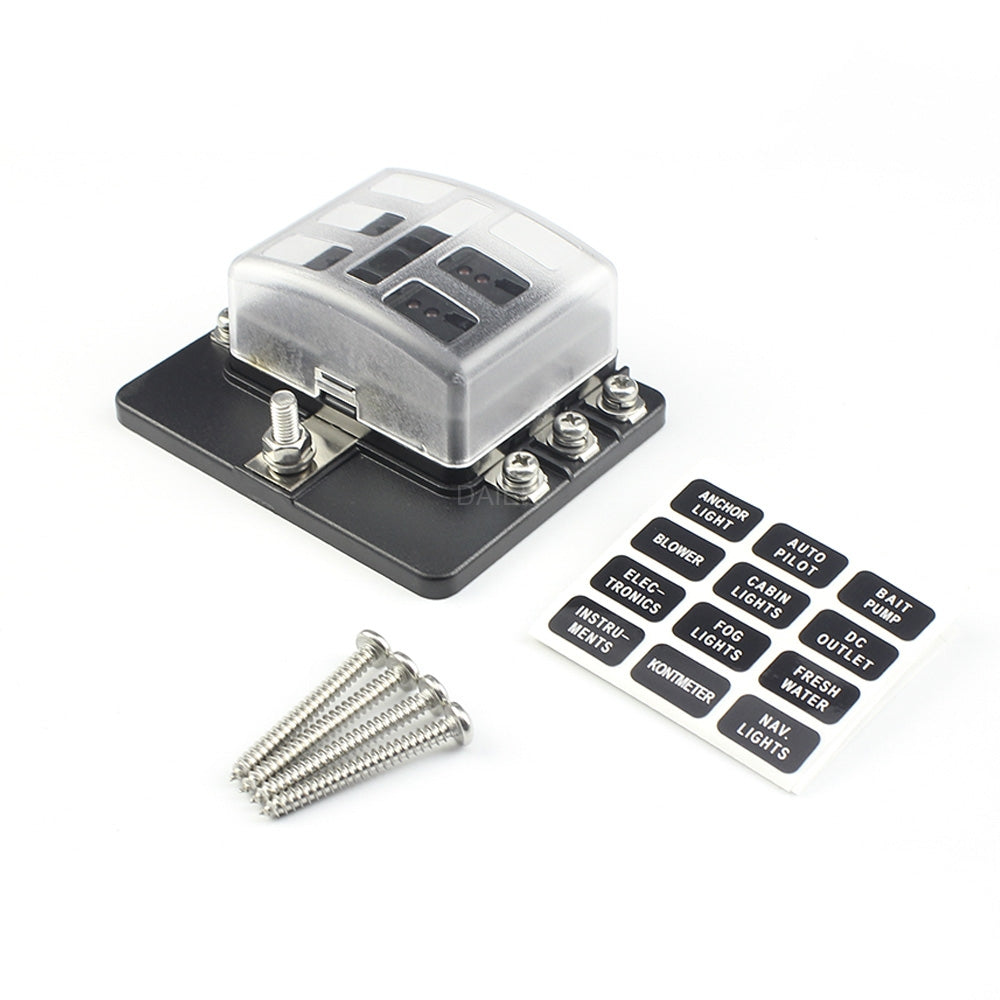A fuse holder is a device used to hold a fuse in place. Insert the fuse into the bracket and mount the bracket to the circuit board or electrical panel. Fuse holders come in many shapes and sizes, and they can be made from a variety of materials.
Fuse holders can be used for a variety of purposes in the home as well as in commercial and industrial environments. At home, fuse holders can provide a convenient way to replace fuses without removing the entire breaker panel. In commercial and industrial settings, fuse holders can protect electrical circuits from damage by allowing fuses to be replaced without shutting down the entire system.
What is a Fuse Holder?
A fuse holder is a device used to hold a fuse in place. It is usually made of metal or plastic and has two terminals to which the fuse is attached. Then connect the fuse holder to the circuit protected by the fuse. If an overcurrent occurs in the circuit, the fuse will blow and open the circuit, protecting the device from damage.
The Benefits of Installing a Fuse Holder
A fuse holder is a device used to protect an electrical circuit from overload. It is an essential part of any electrical system and can provide many benefits.
First, a fuse holder can help protect your circuit from damage. If overloaded, the fuse will "blow" and open the circuit before it is damaged.
Second, fuse holders help prevent fires. If the circuit is overloaded, the fuse will blow and stop the flow of electricity before causing a fire.
Finally, a fuse holder can provide a safety measure. If there is an electrical problem, the fuse will blow and stop the flow of electricity to prevent injury.

How to Install a Fuse Holder?
A fuse holder is a device used to hold a fuse in place. Fuse holders can be found in a variety of devices, including electrical panels, automobiles, and home appliances. Installing a fuse holder is a relatively simple task that only takes a few minutes.
There are two main types of fuse holders: blade and screw. Blade fuse holders are the most common type and are used with standard blade fuses. Screw fuse holders are less common, but can be used with standard or mini fuses.
To install a fuse holder, first determine the type of fuse holder you need, then follow the instructions below.
- Locate the fuse panel and determine where the fuse holder will be installed.
- Using a screwdriver, remove the cover from the fuse panel
- Next, using a pair of pliers, remove the desired fuse from the fuse panel.
- Remove the new fuse holder and insert it into the fuse panel.
- Finally, insert the desired fuse into the new fuse holder.
Fuse holders can protect your home against electrical fires
Fuse holders are an essential part of any electrical system. They are designed to protect your home from electrical fires by breaking the circuit in the event of an electrical overload. Most building codes require fuse holders, so if you plan to do any electrical work in your home, you'll need to install one.
There are many different types of fuse holders on the market, so it is important to choose the one that suits your needs. Some factors to consider include the size of the fuse, the type of wire used, and the current rating. You should also make sure the fuse holder is compatible with the type of fuse you are using.
Installing the fuse holder is relatively easy, but be sure to follow the instructions carefully. Improper installation can result in serious house damage or even fire.
Tips for Maintaining Your Fuse Holder
Fuse holders are an essential part of any electrical system. They provide a safe and easy way to connect electrical circuits. But like any other electrical component, fuse holders can be damaged by heat, vibration or corrosion.
The following tips can help you maintain and keep your fuse holder in good working order:
- Regularly check the condition of the fuse holder. If you notice any signs of damage, replace it immediately.
- Keep the fuse holder clean and free of dust and debris.
- Regularly check for tight electrical connections.
- If the fuse holder is subject to vibration, check for damage more frequently.
By following these tips, you can help ensure that your fuse holder will provide years of trouble-free service.
In conclusion, there are many benefits to installing a fuse holder in your home. Fuse holders prevent electrical fires, are easy to install, and are relatively inexpensive. If you're not sure if a fuse holder is right for your home, consult an electrician.

